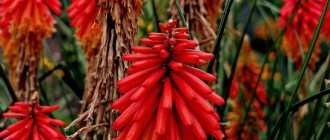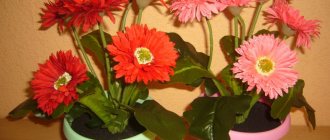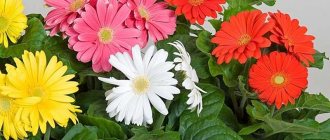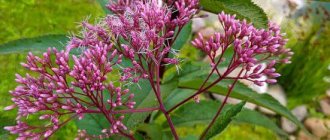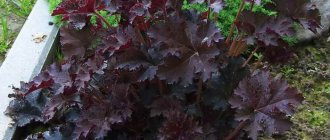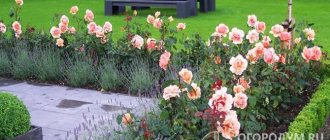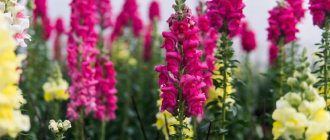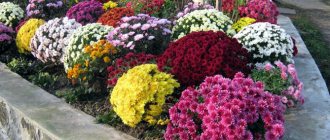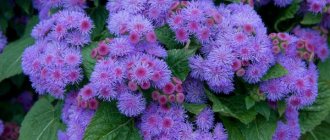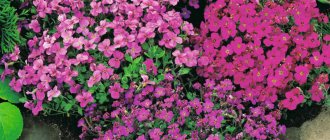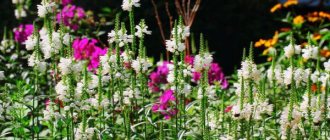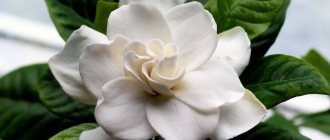Author: Elena N. https://floristics.info/ru/index.php?option=com_contact&view=contact&id=19 Category: Garden plants Published: February 08, 2019Last edits: January 13, 2021
- When to plant
- Growing conditions
- How and when to collect seeds
- Alpine Armeria (Armeria alpina)
Armeria is a flowering perennial with very beautiful inflorescences that form from May until the onset of frost. Armeria is decorated with ridges, it is planted as a border for flower beds and garden paths. Armeria looks good in the vicinity of low-growing and ground cover plants, for example, saxifrage or awl-shaped phlox.
Armeria is often used to make bouquets, including winter ones.
- What types and varieties of Armeria are most in demand in garden culture?
- What is the best way to sow armeria?
- How to care for a plant during the season?
- How to prepare armyia for wintering?
You will get answers to all these questions by reading our article.
2.Description of the flower
Armeria are attractive flowering low growing herbaceous plants. This genus includes about 90 species with spectacular flowering.
The root system is taprooted and lies shallow.
The leaves are linear, dark green or bluish green, reach a length of 10 cm, collected in a basal leaf rosette. The leaf blades are entire, sessile, rigid, slightly bent along the central vein.
During the flowering period, the bushes throw out erect, leafless peduncles , at the tops of which there are rounded inflorescences with small bell-shaped flowers . The surface of the peduncles may be smooth and glossy, or may have short silvery pubescence.
The buds can be painted in white, pink or lilac shades and reach a diameter of 5 mm. Varieties with blue flowers are rare.
↑ Up,
Height . This attractive flowering perennial reaches a height of only 15 - 50 cm and develops quite slowly.
↑ Up,
Armeria seaside: care
Armeria seaside is undemanding to care, so it does not tire gardeners. The only thing that a perennial plant requires is the application of mineral fertilizers 3 times during the growing season:
- before flowering: late April – early May;
- during flowering - June (depending on the variety);
- in the fall.
In dry summers, perennials need to be watered. It is better to carry out the procedure in the evening. When watering, it is important to ensure that the soil at the base of the armeria is not eroded and the roots are not exposed.
Attention!
Watering should be moderate, otherwise the root system will begin to rot and the flower will die.
To maintain decorative plantings, it is advisable to replant the bushes once every 5 years. Basically, Armeria varieties are frost-resistant and do not require shelter. However, this does not apply to turf armeria. Bushes of this variety will need to be sprinkled with dry leaves and covered with spruce branches on top.
3.When does Armeria bloom?
The buds form during the spring months - most often in April. It is difficult to indicate specific flowering dates - they will depend on external factors. Interestingly, individual inflorescences can appear throughout the summer.
With proper and timely pruning, re-blooming often occurs in the autumn months.
↑ Up,
Recommendations for planting
In nature, armeria grows in open sun. Therefore, you need to choose an appropriate place for it on the site.
Biologist and breeder Andrey Shachnev gives the following basic recommendations for planting armeria:
- shallow holes,
- place the root collar strictly at soil level,
- the distance between the bushes is 20-30 cm.
Which soil to choose:
- slightly acidic (unlike most “alpine” plants), add a little ammonium nitrate to alkaline soils within 2 weeks,
- the soil is light, well-drained, loam is not desirable,
- it’s good to add a little hay, sawdust or rotted pine needles,
It is important to water the flower abundantly immediately upon planting. In the future, moisture will be needed only in severe drought - Armeria extremely does not like excess moisture.
Landing dates according to the lunar calendar 2022:
| Month | Better days | Month | Better days |
| January | 25-27, 29-31 | July | 6-8, 23-27, 30, 31 |
| February | 3-14, 17-23 | August | 2-6, 8-10, 12, 14, 22-24, 29-31 |
| March | 3-8 | September | 5-8, 13-15 |
| April | 3-7, 12-15, 25-30 | October | 2-4, 8-15, 20-22 |
| May | 2-5, 7-12, 18-25, 27-29 | november | 3, 4, 9-12, 19-23 |
| June | 1-3, 6-8, 23-26 | December | 1, 2, 4-6 |
In 2022, unfavorable days fall on the following dates:
- January – 2, 3, 17, 18
- February – 1, 2, 16, 28
- March – 1, 2, 18, 27, 28
- April – 1, 2, 16, 23
- May – 1, 16, 30
- June -14, 18, 29
- July – 13, 14, 28, 29
- August – 11, 12, 27-28
- September: 9-10, 26, 27
- October: 9, 10, 25, 26
- November: 1, 2, 7-9, 24, 25, 28, 29
- December: 7-9, 23-25
4.Planting and care in open ground
4.1.When and how to plant
To grow outdoors, you should choose an open, sunny location. Flooded lowlands and places with surface groundwater are not suitable for planting. The perennial will feel best on hills and hills. It is better to place coastal varieties in close proximity to any artificial or natural body of water - such plants need high air humidity. However, in this case, it is worth paying attention to the fact that the area should not be flooded.
Armeria seedlings are planted in mid-May, when the last night frosts are behind us.
↑ Up,
The area is first dug up and some well-rotted organic matter is added to the soil as top dressing. Holes are prepared for planting and placed in accordance with the diagram. The planting holes should not be placed too close to each other - between the bushes of the armeria it is worth leaving a distance of 20 - 40 cm. The fact is that the flower loves ventilated areas, and if kept too crowded, the plants will rot.
The depth and width of the planting holes should be slightly greater than the root ball. A day before planting, the seedlings are watered abundantly and they try to transfer them to a new place of residence by transshipment - keeping the lump at the roots undestroyed.
↑ Up,
When planting, the bushes should remain at the same depth at which they were in the cups. Deepening the root collar of plants can lead to rot. After transferring, the soil around the plants is lightly tamped with your fingertips and watered.
The bases of flowers can be mulched with a small layer of sawdust or bark - this measure will retard the development of weeds. Instead of sawdust, you can use pine needles - it will make the soil pH slightly acidic and serve as additional nutrition. The layer of mulch should not exceed 2 - 3 cm, otherwise it will inhibit the evaporation of moisture and the root system of the flower may rot.
With proper planting, the first buds of the strongest plants may appear already this year, but most bushes will decorate themselves with flowers next year.
↑ Up,
4.2.Soil
Armeria is extremely undemanding to the composition of the soil, because in nature it often grows in rock crevices, where there are very few nutrients. Prefers to grow in slightly acidic or neutral soil that does not contain lime. The flower does not like alkaline soil - the pH of the soil in such areas should be adjusted. In order to get acidic soil, you should spill it with a solution of acetic or citric acid, add ammonium nitrate or mix in pine needles.
Before planting the plant, it is worth mixing a sufficient amount of river sand or even small pebbles into the ground - this will help increase the permeability of the soil.
↑ Up,
4.3.Caring for armeria in the garden
In the first days after planting, the soil is periodically moistened so that the bushes quickly adapt to their new conditions.
Plants that have already taken root in a new place require minimal attention and care. Armeria will tolerate drought better than excess moisture - water it only in case of prolonged hot and dry weather. After watering, the soil surface should be carefully loosened and weeds should be removed under the bushes.
The flower easily tolerates soils poor in nutrients and practically does not need additional nutrition. Excess fertilizer, on the contrary, can cause negative changes in appearance - foliage will form, and flowering will become scarce. In addition, overfed bushes will become more vulnerable to harmful insects and fungal diseases.
↑ Up,
4.4.Fertilizer
Armeria requires a minimal amount of nutrients, so it is fed extremely carefully. In the first year after planting, the flower will have enough of the nutrients that were added to the planting holes.
In the second and subsequent years, it is enough to feed the plants once a month with mineral fertilizers for flowering plants or well-rotted organic matter. Mineral fertilizers should be diluted to half the dose recommended on the package.
Leaf and turf humus, cow or horse manure, and a solution of chicken manure can be used as organic fertilizers.
↑ Up,
4.5.Wintering in the garden, pruning
First of all, when pruning, it is worth promptly removing fading inflorescences, cutting them off at the base with a sharp sterile pruner. This measure will not only maintain an attractive appearance, but will also direct the plants’ forces to form new buds, and therefore the flowering period will be longer.
In the second half of summer - in the fall, the leaves on the bushes will dry out - they must also be trimmed.
Wintering in the open ground is quite easy and in the conditions of the Middle Zone the flower overwinters without shelter. Additionally, it is worth preparing the bushes for the onset of the first frost in harsh regions with little snow. It is also imperative to organize a shelter for armeria turf - these plants may not be able to withstand severe frosts.
↑ Up,
In the fall, the plants are earthed up by sprinkling the root system with soil and covering the top with leaf litter or pine spruce branches. Instead of spruce branches and dry leaves, you can use ordinary non-woven agricultural material as a cover. Remove the cover as soon as the first spring sun warms up.
The main danger during wintering is not the frost itself, but the abundant moisture that appears in the spring when the snow cover melts - the bushes can simply get wet at this moment.
↑ Up,
Armeria care
Growing conditions
Caring for an army is not difficult. Before it blooms, add complete mineral fertilizer to the soil as a top dressing, and then repeat the top dressing once or twice. Remove faded flowers in a timely manner and cut off flower stalks that no longer bear flowers, so that the plant directs all its energy to the formation of new buds. If the summer turns out to be dry, water the armeria, but try not to overdo it with moisture.
When the plant reaches five years of age, it must be dug up, divided into parts and planted, and then do this every 2-3 years, otherwise the armeria will grow. This is how armeria is planted and cared for. It's simple.
Pests and diseases
Armeria is not afraid of diseases or pests, but if it grows in insufficiently acidic soil, problems with aphids or spotting may arise, which are best dealt with by radical pruning of the shoots.
5.Reproduction
5.1.Growing Armeria from seeds
This perennial can be grown quite easily from seeds. When kept in a garden plot under mature plants, self-seeding often occurs.
For seed propagation, you can use your own collected planting material. To form seeds, one or more flower stalks are left on the plant until fully ripened. To prevent the seeds from leaving the inflorescence on their own, you should wrap it in a bandage or wear a simple thin sock.
↑ Up,
After ripening, the seeds are collected and lightly dried in a warm and well-ventilated room for 2 - 3 days. Store seeds in fabric bags or paper bags in a dry place.
When propagating varietal plants, the resulting daughter rosettes may not inherit all the attractiveness of their parents - they should be propagated vegetatively - by division or cuttings. Species plants reproduce successfully with the help of seeds.
Planting material can be planted either directly in open ground or as seedlings at home. Before sowing, Armeria seeds are soaked in warm water with the addition of growth stimulants overnight.
↑ Up,
5.1.1. Sowing in open ground in autumn
When sown directly outside, the seeds will undergo additional stratification under natural conditions. For sowing, it is worth choosing a time so that the first shoots do not have time to appear before the onset of frost. The best month for landing in the Middle Zone will be November.
A small plot of land is loosened and shallow furrows are prepared, where the seeds are sown. The planting material is covered with a small layer of soil on top and watered.
↑ Up,
During the first warm weeks of next spring, you will notice the shoots of Armeria. When such plants get a little stronger, they are planted.
It is fashionable to try to plant flower seeds in the spring - however, in the absence of stratification, their germination rate will be low.
↑ Up,
5.1.2.Growing seedlings at home
Sowing of seedlings is carried out at the end of winter or early spring - in early March. First, the seeds are placed in the vegetable compartment in the refrigerator for a couple of weeks so that they undergo a period of cool stratification, which will increase their germination.
The germination rate of fresh planting material is high and the plants sprout together. The first shoots, if certain agricultural techniques are followed, can be seen 2 - 3 weeks after sowing.
↑ Up,
For sowing, small cups or peat pots are prepared, drainage holes are made at the bottom and a layer of expanded clay or other drainage material is placed. You can sow in seedling boxes.
Fill the pots with a mixture of peat and river sand, taken in equal proportions. The surface of the substrate is thoroughly moistened using a spray bottle with warm water. Seeds are sown on the surface of the ground and covered with a layer of soil about 5 mm thick.
↑ Up,
Containers with seedlings are covered with a transparent cover to maintain high air humidity and placed in a warm place with good lighting. The air temperature in the room should be about 16 - 20 degrees. Direct sunlight should not fall on young bushes - only reflected light is needed. The cover is removed daily and the condensation that has accumulated on its surface during the day is removed. Gradually the time of such ventilation is increased. With the appearance of the first shoots, the cover is removed completely.
When grown in a greenhouse or container, the plants peak with the appearance of the first 2 - 3 true leaves, carrying the bushes carefully, along with a lump of earth. After planting in open ground, the first flowering will occur in the same year, although it will not be very abundant.
↑ Up,
5.2.Dividing the bush
Adult bushes of armeria are periodically rejuvenated by division - the fact is that overgrown plants over time can expose the center and become unattractive. Plant division is the simplest and most effective method of propagating this bush and is carried out on average every 3 to 5 years.
↑ Up,
The division is carried out after flowering - the bushes are dug up along with a lump of earth, then the root system is shaken off from the remaining soil. The roots are carefully examined and old and diseased sections are removed, and in this case the wound surface is sprinkled with charcoal powder or wood ash. Plants are cut into pieces in such a way that the result of this procedure is strong divisions with their own roots and a well-developed above-ground part.
Next, the young plants are planted and they begin to care for them like other armeria. Dividing can also be done in early spring - however, this may affect flowering in the current year. In the spring months, the flower will take root in a new place, and the first buds will appear only in the fall.
↑ Up,
5.3.Propagation by cuttings
In this case, young root rosettes are used as cuttings, which from time to time will form near the mother bushes. Such rosettes can be carefully separated from the main plant even when they do not have their own roots.
Rosettes are planted in small cups with soil or directly into the ground, however, in the first weeks before the formation of the root system, such plants will require careful care. The bushes are lightly sprinkled with soil, which is kept evenly moist but not waterlogged throughout.
To create a greenhouse effect, the flowers are covered with a plastic cap, which is removed daily and the outlets are ventilated.
After some time, the first signs of new growth can be seen on such specimens - this will mean that the first roots have appeared under the ground.
↑ Up,
Armeria after flowering
How and when to collect seeds
There is no point in collecting seeds if armeria is already growing on your site - it reproduces well by self-sowing. In addition, an obligatory element of plant care is dividing the rhizomes and planting cuttings, so that you will always have plenty of planting material, and the sowing material sows itself.
If you want to share your armeria with someone, you can give away part of the cuttings when transplanting or cut cuttings. But if you absolutely need to have seeds, tie the fading inflorescence with gauze so that the ripened seeds do not fall to the ground, and when the inflorescence is dry, cut it off, shake the seeds onto a newspaper, clean them from the remains of the flowers and, after drying, pour them into a paper bag.
- Preparing hyacinths for autumn planting in the ground
Perennial armeria in winter
Armeria is a frost-resistant plant and can easily survive the winter without shelter, especially if there is a lot of snow in winter. The only exception is the soddy armeria, which must be covered. Dry peat, spruce branches and non-woven materials are used for covering. If, according to forecasts, the winter is expected to be snowless, it is better to cover other types of armeria with spruce branches: they will be warm and you will be at peace.
6.Armeria transplant
In the same place, armeria can develop over a long period of time - bushes can reach 7 - 10 years. Such mature plants often lose their decorative properties - flowering becomes less abundant, and the middle of the bush may simply become bare.
In order to rejuvenate such specimens, they are dug up, divided and transplanted to a new location every 3 to 5 years.
A similar transplant is carried out in the last weeks of summer or in the fall - after complete flowering.
When working with a flower, you should be careful - the sharp edges of the leaves can easily injure your hands. When transplanting flowers, protect them with gloves first.
↑ Up,
Diseases and pests
The collection of Armeria seeds is usually carried out only by breeders
This culture is surprisingly resistant to disease. But on acidic soils, armeria can be attacked by aphids and leaf spots can occur. Affected areas must be pruned immediately, after which the plant should be treated with fungicides.
Preventive treatment of bushes with appropriate drugs, for example, Intavir, helps. You can sprinkle the plants with ash.
Spotting is often caused by excessive soil moisture, so hold off on watering or the plant will die. Even if a significant portion of the leaves are affected by the disease, they must be removed immediately; no treatment will help.
7.Use in landscape design
When grown in the garden, Armeria can be used as a border or ground cover plant. The flower can decorate the rocky slopes of alpine hills and form a beautiful edging in a flower bed or flower garden.
When grown as a ground cover plant, the bushes of Armeria are placed quite densely when planted - in this case, it forms a continuous grassy mat.
A combination of armeria with such low perennial plants as saxifrage, arabis, aubrieta, and cotula will look great. You can also plant daisies, outdoor varieties of sedum and thyme, and phlox subulate nearby.
Armeria is an evergreen plant and emerges from under the snow with green leaves, which is why it is able to decorate the garden plot during all warm months - from the melting of the snow cover to the fall of snow.
↑ Up,
How to prepare for winter
The flower tolerates winter well even with very low temperatures, but provided there is a sufficient amount of snow that covers the bushes and protects them from negative factors.
It is necessary to cover the plant during cold periods so that the branches do not freeze
Attention! The sod flower is the only representative of the plant that does not tolerate frost well. Before the onset of cold weather, the bushes must be covered with spruce branches or wrapped in non-woven fabric.
If there is not enough snow, the plants need to be covered with fallen leaves or spruce branches. You can use non-woven fabric or dry peat for covering. With the onset of the first warm spring days, the bush needs to be opened.
9.Note, interesting facts
In people prone to allergic reactions, Armeria pollen can cause an attack.
Early and abundant flowering will attract bees and other beneficial insects to the site - in this case, the bushes will become excellent honey plants.
Peduncles with attractive buds can be cut as soon as the flowers begin to bloom and placed in a vase with water - when cut, they will not lose their attractiveness for 7 - 10 days. Also, dried flowers obtained from this plant will decorate the interior for 1 - 2 years.
↑ Up,
In order to obtain dry inflorescences, the flower stalks are cut when approximately half of the buds are open, then collected into small bunches and tied with twine. The bunches are hung under a canopy or placed in a warm, well-ventilated place. It is worth making sure that such bunches are not exposed to direct rays of the sun - in this case, the buds may lose color and burn out.
The compact size of the flower allows it to be grown not only in the garden and country house, but also at home - in ordinary flower pots.
↑ Up,
Interestingly, the very name of the flower is associated with its place of growth in nature - it comes from the Celtic phrase “ar” and “mor” - near the sea. Some botanists believe that the generic name comes from the French language, where the word “armoires” meant bearded carnation, similar in appearance to our flower.
Sometimes, over time, a species of Armeria begins to behave like a weed—they begin to self-sow abundantly and divide. To grow such species, it is worth choosing a site where it will not interfere with other plants or limit planting using a special garden border or buried slate, and cut off the inflorescences immediately when they wilt.
↑ Up,
Watering and loosening the soil
Despite the fact that planting and caring for armeria in the open ground will not cause difficulties, the minimum recommendations should be followed. The flower can survive periods of drought, but it is still recommended to water it from time to time.
Saxifraga flower - planting and care at home
During a particularly dry season, it will be useful to spray the leaves and flowers with a spray bottle or a special garden sprayer. The bush will grow and develop if you occasionally loosen the soil around it.
Important! Flowers should not be over-watered as they do not tolerate stagnant water.
10.Varieties and types of armeria:
10.1. Alpine Armeria - Armeria alpina
An alpine species that prefers to settle on alpine slopes, at an altitude of 1500 to 3000 meters above sea level. These compact herbaceous plants reach a height of only 10 - 25 cm and during the flowering period, which occurs in late spring or in the summer months, they decorate themselves with large and bright inflorescences with pink buds.
↑ Up,
10.2. Armeria pseudarmeria
Plants of this species reach a height of 30–35 cm and have fairly wide, hard leaf blades. Peduncles are strong, vertical. The inflorescences are very large and bright - they begin to appear in the spring and again in the autumn. The buds can be colored purple, white, red or pink. Some cultivated varieties have been bred based on this variety.
↑ Up,
10.3. Seaside or magnificent Armeria - Armeria maritima
The most common type of armeria in floriculture is a flowering perennial that grows naturally in the coastal zone of Europe and North America. The bushes reach a height of 15 - 30 cm and form a basal rosette of dark green, hard leaves at the base. Numerous flower stalks appear in spring.
↑ Up,
10.4. Bulbous Armeria - Armeria alliacea
A Mediterranean plant of compact size - often the bushes do not exceed 15 - 20 cm in height. This variety will decorate the garden not only during flowering - after the flower stalks are cut off, attractive round-shaped herbaceous hummocks remain in the flowerbed.
↑ Up,
10.5. Armeria Welwitschii - Armeria welwitschii
An interesting feature of these plants is that in nature they are located no further than 250 m from the sea coast. The bushes reach a height of 30 cm, have soft, green leaves at the base and thin peduncles. The inflorescences are small and graceful.
↑ Up,
10.6. Armeria pungens
The tallest species - this herbaceous perennial can grow up to 80 cm and forms large, lushly flowering bushes. The leaf blades are linear, reach a length of 15 cm, and are colored dark green. Large inflorescences bear several dozen bright pink flowers.
↑ Up,
10.7. Soddy or juniper-leaved Armeria - Armeria juniperifolia, Armeria cespitosa
Evergreen perennials of a compact, round shape, 15 - 30 cm high. The variety is distinguished by very abundant flowering - in late spring or early summer, the inflorescences can completely hide the foliage.
↑ Up,
Growing Armeria from seeds
Sowing
You can grow a plant from seeds using the seedling method, as well as through seedlings. Seeds are sown in open soil at the end of the autumn period, so that in winter they will undergo natural stratification. You can also sow in the spring in the first days of March. In greenhouses, seedlings are sown in the last days of February or the first days of March. Also, propagation of this flower can occur by self-sowing. When sowing seeds in open soil, as well as in a greenhouse, you need to take into account that you should not bury them too deep. So, it is recommended to sprinkle the seeds with a 5 mm layer of soil. Such seeds have a high germination rate.
Seedling
In order for the seedlings to be friendly, it is recommended to place the seeds on the refrigerator shelf for 7 days, and then, before direct sowing, immerse them in lukewarm water and remove them after 6–8 hours. The crops must be moved to a well-lit and warm place. After the seedlings have 2 true leaves, they are picked into greenhouses for growing. They must stay there until they get stronger.
